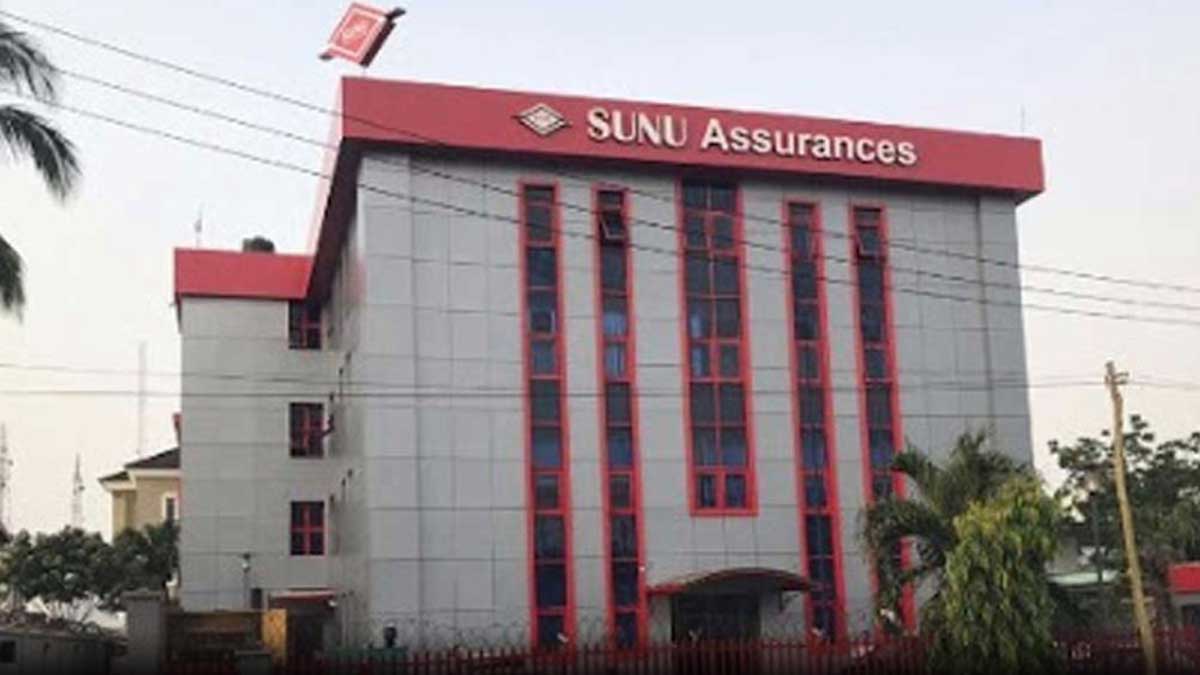
Usman Suleiman is the Managing Director and chief executive officer FUG Pensions, in an interactive session with journalist in Lagos, he believes that deregulation of petroleum pricing, exchange rate regime, investors will have direction and focus on investment in the economy, JOSHUA NSE was in attendance. Excerpts
What is your overview of the economic climate last year as it affects the pension industry
Future Unity Glanvills Pensions Limited (FUG Pensions) actually held a management and board retreat at the beginning of 2014 in which we came up with a medium term strategic plan for the company that was running through 2014 to 2016, with the intension of holding the session in the forth quarter to review how we have performed within the context of the medium term strategy. 2015 has generally been a difficult year for the economy as a whole for obvious reasons. The year was an election year and there was a lot of apprehension as to the future of the country.
In the political direction, there was a lot of fear about crisis arising from the election particularly when the election dates were shifted for a period of some weeks. However, as it turned out, the elections were concluded successfully. The country overcame crisis and the new administration took off. That doubt brought some tensions, but a lot of investors have confidence in the future. They began to look at the focus of the new administration. However, it took a little bit of time for the administration to fully settle, get the cabinet running and came up with clear political direction. That really dragged on to the end of the year and for that reason the economy was very slow. For us in the pension industry that will naturally affect our performance in terms of growth in registration. We are in the contributory pension, effectively meaning that unlike the defined benefits, it is totally and completely dependent on employment generation and employees opening their RSA.
As a consequence, the slow pace of economic activities, there was a loss in employment generation over the period, not only in the private sector which is supposed to be a major employer of labour but also in the public both Federal, states and for that reason there was no significant growth in employment generation into the system. However, in spite of the circumstance, for us in FUG Pensions, we have been able to weather the storm and move into 2016 with the confidence of being able to move towards meeting our projections in the medium term strategy.
Now at the beginning of first quarter of 2016, the direction was being identified particularly in relation to policies that have to do with exchange rate and petroleum prices, and by the beginning of the second quarter, even though without clear cut policy statement is clear that the exchange rate regime is now in place, petroleum pricing has also come into effect, therefore investors now have a direction, they would be able to anticipate and focus unlike the later part of 2015, with that we expect that the second half of 2016, that is, third quarter, fourth quarter of 2016, we are going to see regeneration of activities in the economy, we anticipate that investors having now seen that will bring in their funds, they now have window where the liberalized exchange regime will be able to trade their capital and profit, even then we anticipate that funds companies that have been looking for investment generating activities, will now be able to attract partners for investment. We also anticipate that portfolio investors will also look at staging a come back into the capital market in the third and fourth quarter of the year. We also anticipate that petroleum marketers will now be ready to really commence the importation of fuel particularly aviation fuel because they now can sell at N145 per litre. With the pricing regime, they have an avenue of taking care of both the import and transportation costs and their margin, we anticipate less pressure to that effect.
However, the main issue standing as obstacle to the overall commencement of economic activities is the issue of power generation, because of lack of fuel, that is, gas, of course power generation infrastructure is based on thermal system which is power from gas. The existing hydro power stations have not generated enough power to significantly service all the national grid, unfortunately we do not have other sources of power generation such as coal which we have in abundance in this country. There should have been power plant base on coal in Enugu, Kogi and Gombe states. Of course, Ashaka Cement is building small power plant in Gombe base on coal, but there should have been major plants base on coal. If other sources of power have been developed then we will not be so much tide to thermal plants as at the moment. What is happening now in Niger Delta where gas is sources from along the route where these pipes passed, it becomes a serious challenge because the issue of vandalism of our pipelines have to be addressed. It is not just the issue of vandalism, it has so many surrounding structures that is surrounding our economy.
For us in FUG, we continue to maintain our optimism to sustain the expectation that we will be able to achieve our medium term goals. In the second quarter of this year, we have seen that we have actually been able to cover part of what we have not been able to achieve in 2015.
How has the economic downturn impacted on the pension industry
A lot of shops have closed down and that has seriously affected our business in two ways. One is the drop in the rate of employment which automatically affected our business in terms of the new accounts that we generated. Secondly, in terms of having to service employees who are now out of job and will have to sustain themselves. The law has provided that in the event of the loss of job and inability to get another job for a period of four months and above, he can apply to access 25 per cent of the balance in his account. Now this is an amount that would have been in the account to be invested and growing, but because of his being laid off job, the owner of he account will now come to withdraw 25 per cent for consumption, meaning that only 75 per cent will remain to be invested. Besides, no new employee is coming into the system until that retrenched employee get another job and start contribution again. If the employee failed to get another job up till 50 years, he will now come back as a retiree to fully access that account at lump sum as pension which normally he would not have done.
These are the two fronts which our business is affected by that situation. It is a reality on ground, but we anticipate that as these companies commence investing again, the laid off workers will be called back to work. Government is targeting employment generation as one of the core objectives with agriculture and private sector in the employment generation. Of course, we know the challenges we face when we come to agriculture such as pest invasion etc. These are issues that government will have to tackle for agriculture to be able to generate employment as expected. For us generation of employment in all sectors is good for our business because everybody working will be expected to have a saving for heir retirement. We therefore advice that any sector that one is working , should have an account for retirement.
What are the industry doing to recover remittances held by some employers
We cannot say remittances are not coming in , remittances are coming as long as companies continue to exist even those companies that have downgraded their operations and laid-off their workers. For workers who continue on employment they continue to remit . However, it is the public sector you have this practice because a number of states that have keyed into the system are also in recent times facing difficulties to pay salaries and have defaulted in remitting pension. I know of a state that has not paid salaries for several months, but surprisingly they pay pension deductions up to date, while some of the states are finding it difficult to remit. The significant exception is of course Lagos State. the state has not defaulted in any way. At the federal level, government has made efforts to get funding for remittance, but as you probably are aware, have arrears of several months, the last remittance is probably September 2015.
We are aware PenCom is making efforts to get the arrears paid, we expect the reduction of the arrears very soon.
The industry is yet to agree on criteria for accessing pension fund for capital projects, what are the challenges First of all it is not an issue of accessing the money, the government accesses the fund as 70 per cent of the fund is actually in the Federal and state government bones. These bonds can fund anything the federal government wishes to undertake. What we are talking about is funding of capital projects. How are you going to do that. Pension Fund Administrators are not fund managers, we do not have that capacity , we are also not investment bankers, we do not have capacity of financing projects, marketing projects and funding projects. The capacity we have is to manage the funds and invest the funds for long term safety and returns as our goal. We are available and ready to fund projects that meet these requirements. First safety and reasonable returns. How do you generate these projects it is now the parties that will want to implement those projects that have the responsibility of packaging the project to meet the requirements that will enable pension funds to go into funding those projects.
What we have been saying is let project promoters be they government, institutions, private sector, multinational agencies, development finance institutions to create vehicles for generating , developing those projects and then present it to us, allow these projects to meet our requirements, they must meet the international best practice which is known to everybody, the fund will definitely go to funding these projects. When we invest in federal government bonds, the assumption is that those bonds could be funded projects. The government could make those bonds specific, they may float a bond for funding a particular bridge, let say 2nd Niger Bridge, they could float a bond for funding. This will be tied specifically to projects . It is then that the projects promoters and managers to now develop these projects, market these project, call for financing such that they would meet internationally accepted standard then present them to the funding agencies which is the Pension Fund Administrators and other investors to access and come in, that is what PFAs want because like infrastructural projects, it is a long term project.
Your company recently won the ISO certification quality award, how will this impact on your service delivery
Our board has always emphasized the need to achieve the objectives of safety of the funds we are managing, ensuring significant returns on those funds, ensuring effective service delivery to our clients. Every RSA holder actually will be concerned with returns on their investment and the service delivery particularly at the point of retirement. Having accepted that challenge we have to achieve. We position ourselves to be able to realize the most competitive returns in the industry. On the service delivery we now decided that how do you achieve it. How will you be ranked as the most significant player in the industry. We then came to the conclusion the way to do it is to achieve the internationally best practice not just to be to measured with any other organization anywhere in the world. To be an ISO is the organization that regulate standards worldwide, it is a certification that is given centrally and recognized globally to certify that all institution has achieved a certain minimum standard that is accepted globally. We voluntarily without the prompting decided to check to the standard of the international body so we preserve as organization that has service delivery as the core of our activities. We commenced the process of being certified when we met their standard that is considered as minimum.






